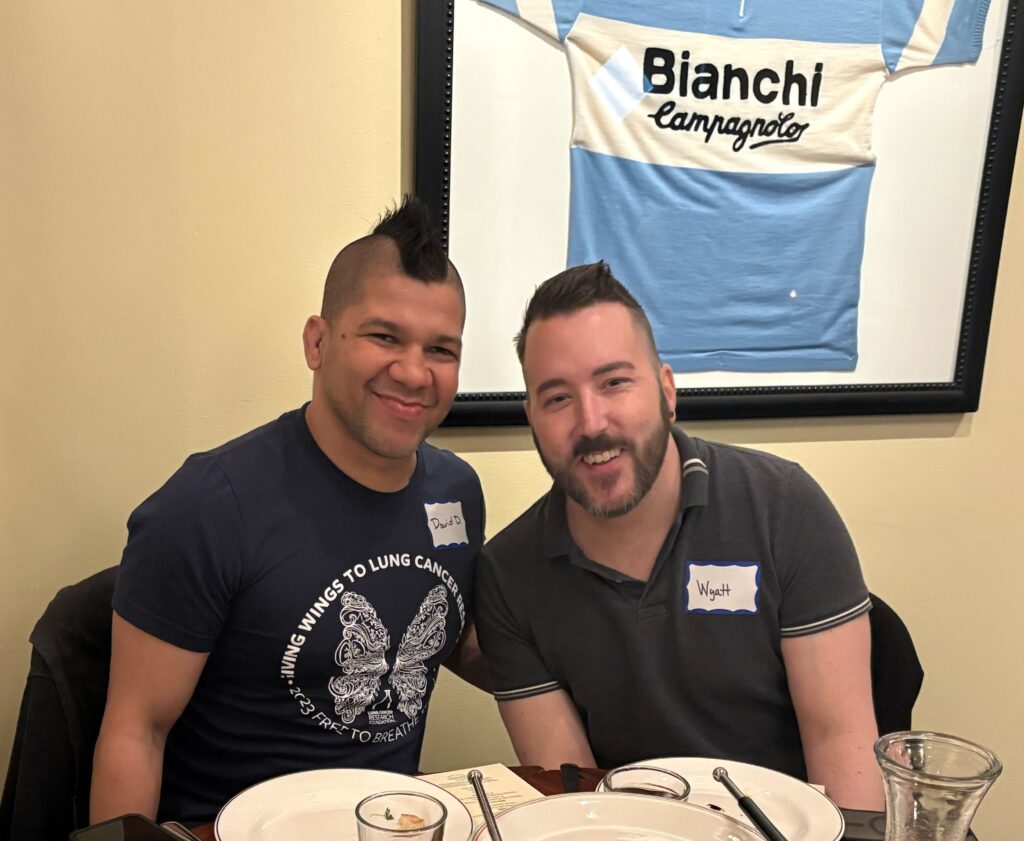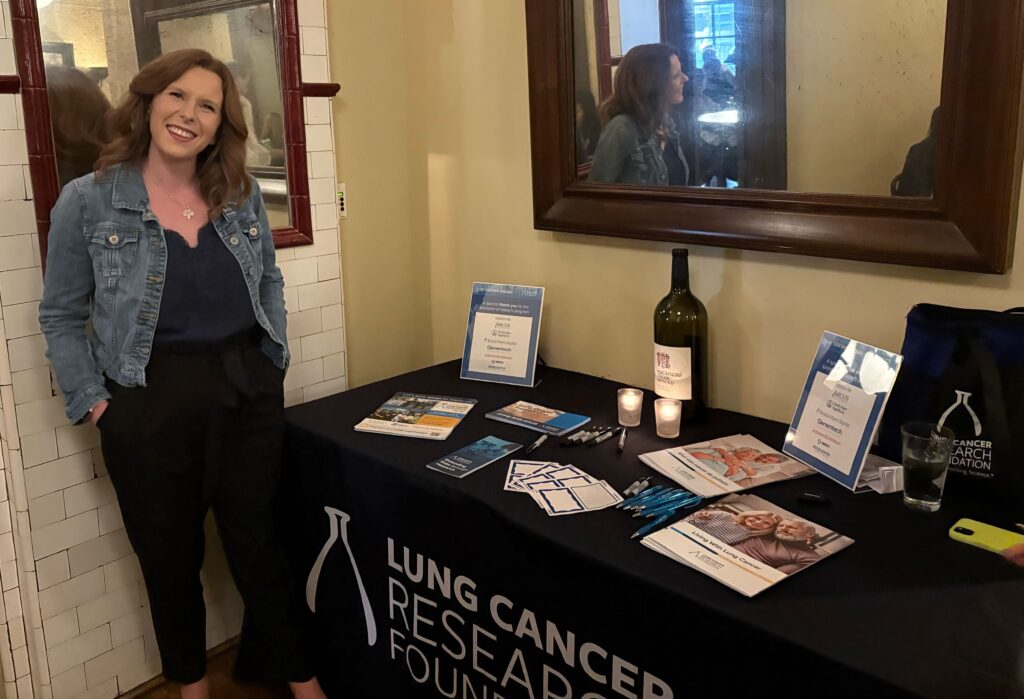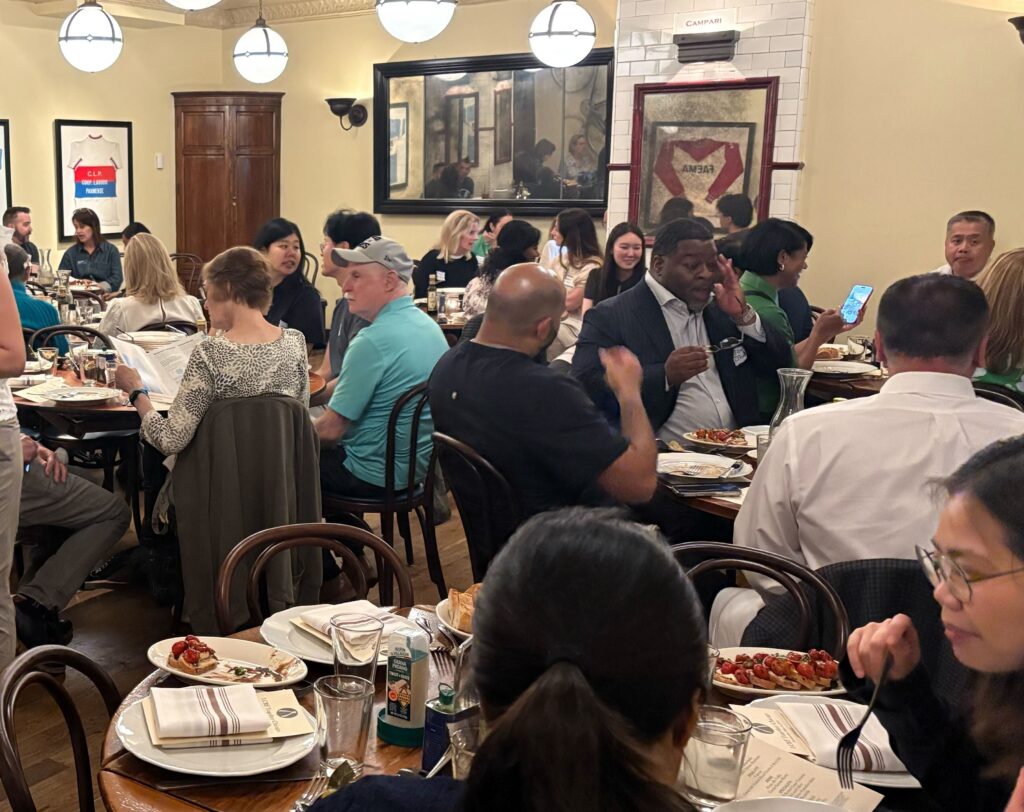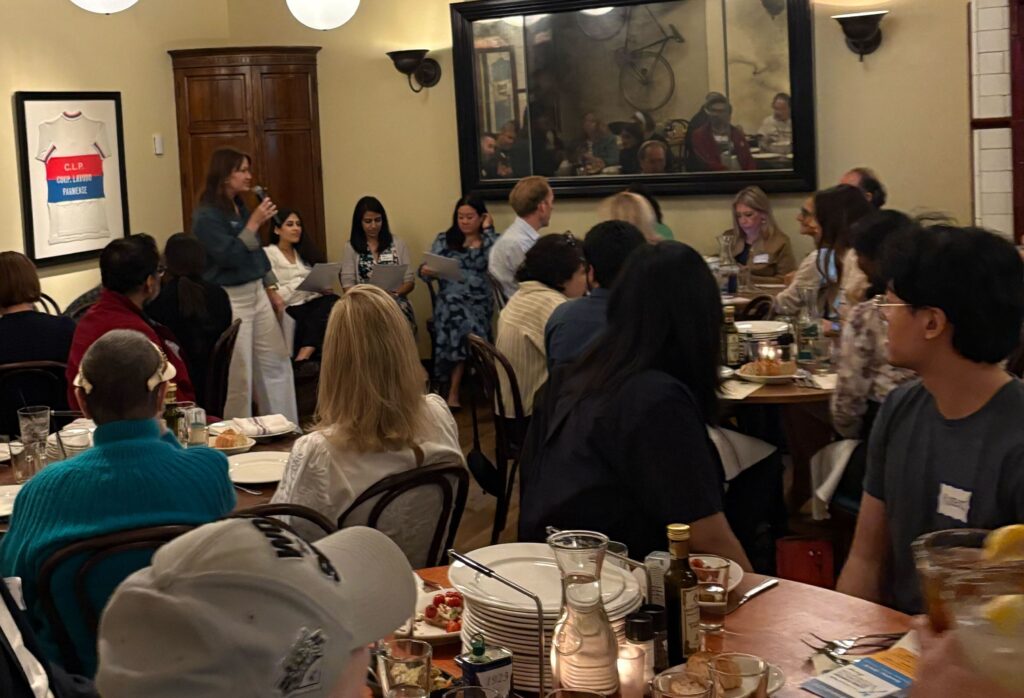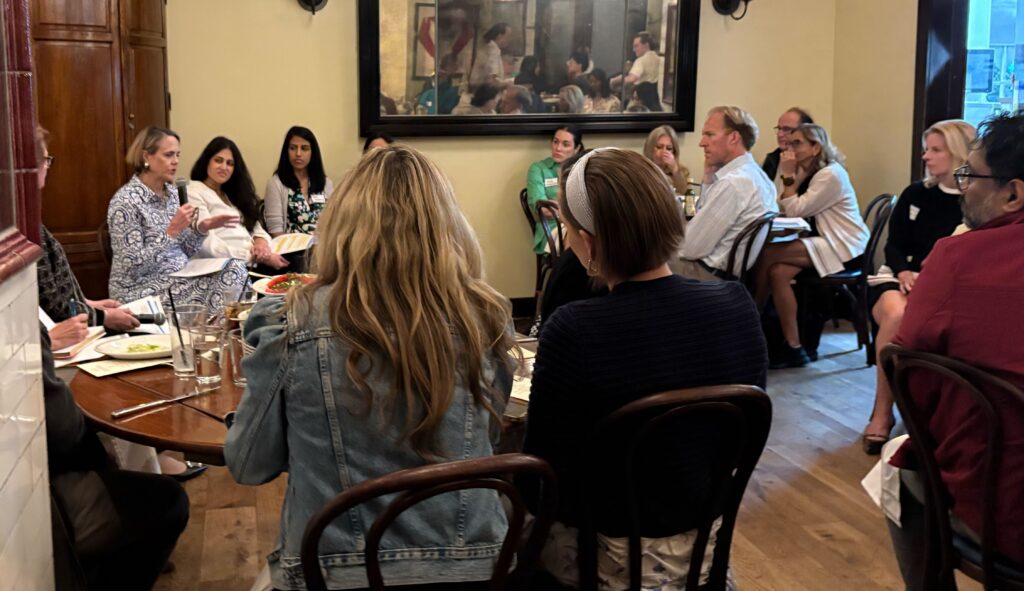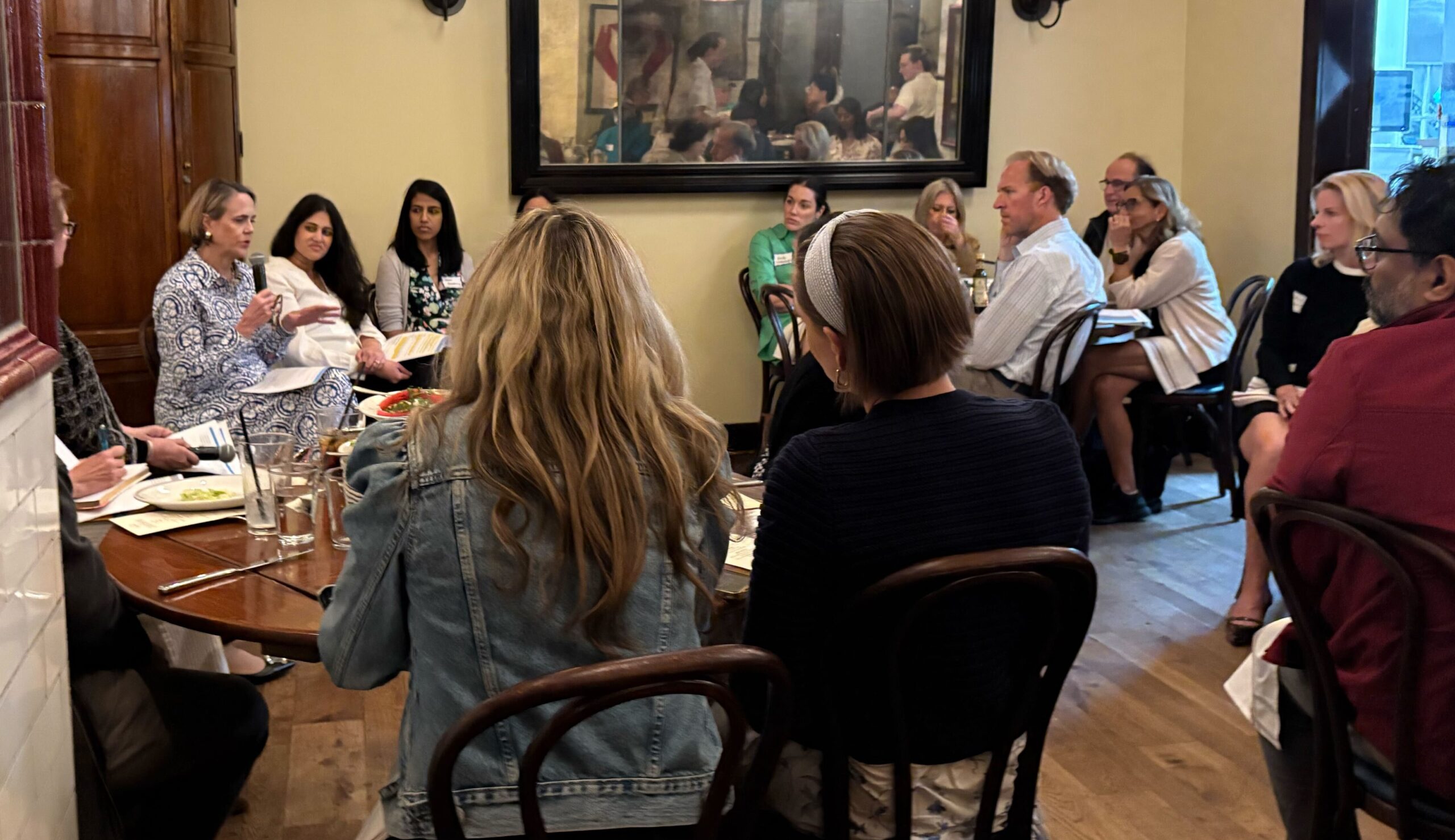A group of about 50 patients, caregivers, and others interested in lung cancer treatment gathered at Quartino Restaurant in Chicago on May 14 for LCRF Together Chicago.
Guest experts included Jessica Donington, MD and Noura Choudhury, MD from UChicago Medicine; Divya Gupta, MD and Michelle J. Munroe, APRN from Northwestern Medicine, along with moderator Antoinette Wozniak, MD, LCRF’s Chief Scientific Officer.
A number of topics were discussed by the panelists:
Targeted therapy
Drs. Gupta and Choudhury updated the audience about recent advances in the treatment of patients with oncogene-driven lung cancer including those with mutations in EGFR, ALK, KRAS, HER2, and ROS1. Several attendees were quite engaged and asked multiple questions about targeted treatment of these malignancies.
Surgery: an option for stage 4 lung cancer?
Dr. Donington, who is a thoracic surgeon, explained that “classically, surgery isn’t an option because we know that the cancer cells have moved to other parts of the body.” She also stated, “In recent years, we’re seeing this more because our systemic medicines are so much better, and patients might have only one other site of disease. However, it’s very selective.” Radiation therapy has also been utilized in this situation.
Others pointed out that the surgery “is not a piece of cake” and that systemic treatment would still be needed in addition to the surgery. The decision for surgery in stage 4 lung cancer patients should be made by the treating physicians usually in the context of a multidisciplinary clinic.
Early-stage disease
Another topic of discussion was advancements in treating early-stage lung cancer. Dr. Donington shared that during her entire career, “early stage has always taken a back seat at the ASCO meeting, but finally the biggest recent advancements have been in early-stage disease.” Chemotherapy and immunotherapy are already FDA approved for neoadjuvant (before surgery) treatment and the first neoadjuvant trial with osimertinib in EGFR mutant lung cancer is being presented at the upcoming ASCO meeting.
Supportive care
Ms. Munroe addressed special support for patients who are experiencing toxicities, especially those undergoing immunotherapy. “Being on top of symptom management is crucial,” she said. “We are trying to make sure that patients are having a good quality of life – and ensuring that cancer is only a small portion of their life. Patients should be able to work if they need or want to and be able to spend time with their families. They should not have to always worry about what’s next with their cancer treatment.”
Other topics
Drs. Choudhury and Gupta updated the audience on a variety of topics including small cell lung cancer, antibody drug conjugates, and the use of biomarkers to detect and monitor lung cancers.
Screening and detection
The group engaged in a very animated discussion regarding lung cancer screening. “Only about 6% of people diagnosed were found through screening,” Dr. Donington said. “I think for screening to be impactful, we need to broaden the criteria and increase the infrastructure and access so that the people who should get screened, do get screened.”
Several attendees voiced their concerns regarding never-smoking patients and the fact that they would not have been eligible for lung cancer screening. Dr. Wozniak pointed out that general practitioners need to be more aware that people can and do get lung cancer despite not having any known risk factors.
Other upcoming educational events include a Together Separately livestream on June 25, which will recap the ASCO Annual Meeting May 30 – June 3.
